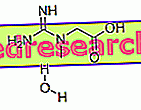FRAGMIN ® is a drug based on sodium dalteparin.
THERAPEUTIC GROUP: Antithrombotics.
IndicationsAction mechanismStudies and clinical effectiveness Usage and dosage instructionsWarnings Pregnancy and lactationInteractionsContraindicationsUndesirable effects

Indications FRAGMIN ® Sodium Dalteparin
FRAGMIN ® is used in the prophylaxis of deep vein thrombosis in general and orthopedic surgery.
Sodium dalteparin is also successfully used in the treatment of acute deep venous thrombosis or in unstable coronary artery disease (unstable angina, non-Q myocardial infarction) in synergy with acetyl-salicylic acid.
FRAGMIN ® can also be used effectively in the prophylaxis of coagulation during hemodialysis or long-lasting hemofiltration (over 4 hours).
Mechanism of action FRAGMIN ® Sodium dalteparin
The sodium heparin delta, taken subcutaneously by FRAGMIN ® has an excellent bioavailability (which is around 90%) and reaches the maximum plasma concentrations in about 3 - 4 hours.
Despite the half-life of the molecule is about 4 hours, the antithrombotic effects of sodium dalteparin are prolonged for 24 hours, therefore requiring a reduced frequency of administration compared to the common heparin.
The anticoagulant and antithrombotic action of FRAGMIN ® is associated with the presence of a mixture of polysaccharides derived from low molecular weight heparin.
Similar to heparin, these polysaccharides are able to bind antithrombin III and induce a conformational change. This action is the basis of the inhibitory activity against some coagulation factors, such as thrombin or Factor X (important in mediating the passage from prothrombin to thrombin and favoring the degradation of fibrinogen soluble fibrinogen).
Studies carried out and clinical efficacy
EFFECTIVENESS AND SAFETY OF DALTEPARIN
The study made it possible to compare the efficacy and safety of dalteparin compared to unconjugated heparin, after heart valve surgery, by observing a more pronounced reduction in thrombotic and hemorrhagic events in the group treated with delta heparin. More precisely, thrombotic events occurred in 4% of patients treated with delta heparin and in 11% of those treated with unfractionated heparin. The same trend was also observed for hemorrhagic events.
2. ANTI-INFLAMMATORY ACTION OF THE EPARINE
leukocyte. An in vivo model of acute inflammation has shown how the administration of these oligosaccharides can effectively counteract neutrophil extravasation, reducing inflammatory events often associated with atherosclerotic pathologies.
3. TOWARDS NEW ANTICOAGULANTS
The current proposed anticoagulant therapies have very important limits, which often reduce their effectiveness and complicate the achievement of the therapeutic target.
On the one hand we have vitamin K antagonist therapy, such as Warfarin, which has the advantage of an oral administration but the limit of an unpredictable anticoagulant activity (which requires tight monitoring), on the other we have low weight heparins molecular, which, although characterized by a fairly predictable action profile, have the major limitation of parenteral administration.
Several researchers around the world are experimenting with new factor Xa inhibitors (necessary for thrombin synthesis) that can unify the advantages of currently used therapies.
Method of use and dosage
FRAGMIN pre-filled syringes for subcutaneous use of 2500IU / 0.2ml; 5000UI / 0.2ml; 7500UI / 0.3ml; 10000UI / 0.4ml; 12500UI / 0.5ml; 15000UI / 0.6ml; 18000UI / 0.72ml of sodium deltaperine: the dosage formulation, the timing of administration and the duration of therapeutic treatment, is strongly influenced by the type of event for which the assumption is required, the patient's state of health and the imposed therapeutic target . The prescription of this drug is of exclusive medical pertinence.
FRAGMIN ® can be administered subcutaneously by inserting the needle of the pre-filled syringe entirely and perpendicularly to the skin fold, raised from the abdominal fat tissue, or from the lateral side of the thigh.
IN ANY CASE, BEFORE RECRUITMENT OF FRAGMIN ® Dalteparin sodium - THE PRESCRIPTION AND CONTROL OF ITS OWN DOCTOR IS NECESSARY.
Warnings FRAGMIN ® Sodium Dalteparin
Heparin and sodium heparin intake could be accompanied, especially in the first phase of treatment, by thrombocytopenia, with a potentially dangerous course.
While in most cases this alteration could regress following the suspension of the therapy or even after its maintenance, in some cases it could be aggravated with the formation of immune complexes potentially capable of determining the formation of white thrombus (formed by the heparin-mediated aggregation of platelets), and increase the risk of thrombotic events.
In light of this possible outcome, it would be advisable - especially in the initial phase of the treatment, and periodically to therapy started - to monitor the serum levels of platelets and suspend therapy if these fall below 100, 000 / mm3, avoiding reiteration in the future.
Repeated punctures in the same site, spinal or peridural anesthesia, could be associated with the appearance of haematomas potentially dangerous for the patient's health. In these cases, medical and paramedical personnel should pay particular attention to the appearance of the relevant signs and symptoms.
FRAGMIN ® should not be administered intramuscularly.
The intake of sodium heparin does not affect the patient's normal perceptive abilities, maintaining the ability to drive vehicles and use machinery unaltered.
PREGNANCY AND BREASTFEEDING
Sodium heparin delta has not proved particularly toxic to the health of the fetus; however, induced hemodynamic changes could be potentially dangerous. In light of these data, and given the presence of benzyl alcohol in some formats, it is desirable to avoid the intake of FRAGMIN ® both during pregnancy and during lactation, although the possibility of gastro-intestinal absorption is very unlikely of heparin by the newborn.
Interactions
An increased risk of bleeding was observed when FRAGMIN ® was administered simultaneously with acetyl salicylic acid, non-steroidal anti-inflammatory drugs, ticlopidine, glucocorticoids and antiplatelet agents.
If the administration of the aforementioned active ingredients is unavoidable, it would be advisable to frequently monitor the patient's coagulation abilities, in order to reduce the possible incidence of bleeding.
Contraindications FRAGMIN ® Dalteparin sodium
Due to the increased risk of bleeding, FRAGMIN ® is contraindicated in case of hypersensitivity to the active substance, to one of its excipients or to other forms of heparin, in patients with thrombocytopenia, gastroduodenal ulcer and cerebral hemorrhage.
For the same reason, the sodium heparin delta is contraindicated also in case of cerebral aneurysm, alterations of the coagulation processes, lesions or surgical interventions of the CNS, visual and auditory apparatus, and in case of uncontrolled hypertension.
Undesirable effects - Side effects
Intake of FRAGMIN ® has rarely been associated with thrombocytopenia, cutaneous necrosis at the injection site and painful erythematous plaques accompanied by general symptoms. In these cases the rapid suspension of therapy has guaranteed an immediate regression of the symptomatology.
Spinal or epidural hematomas were observed very rarely when FRAGMIN ® was used with a prophylactic purpose during spinal, epidural or lumbar puncture anesthesia, while haemorrhagic events were observed in patients with predisposition.
Increases in transaminases have been observed rarely.
Note
FRAGMIN ® is replaceable only under medical prescription.



